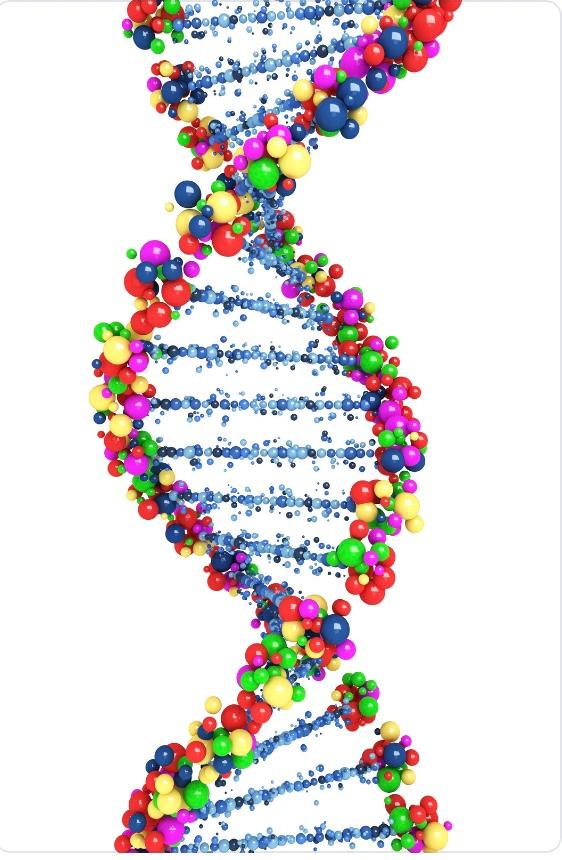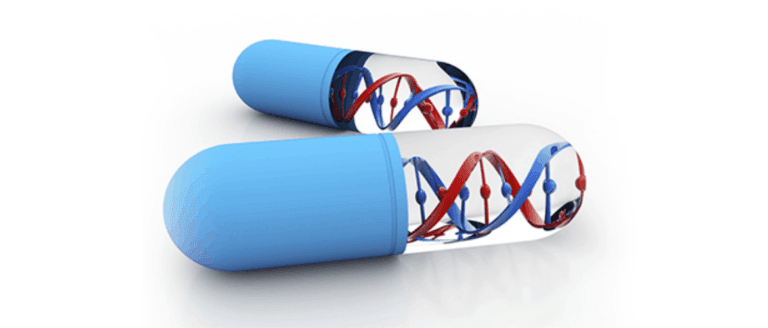Pharmacogenomics is a fascinating field that explores how a person’s genetic makeup influences their response to medications. Human genetic variation is the underlying reason why individuals can experience different drug efficacy and adverse effects. By studying the connection between a person’s genetic makeup and drug effectiveness, this science helps doctors choose the right treatments and dose for individual patients thus helping to improve outcomes and reducing unwanted side effects.

What Is Pharmacogenomics?
Pharmacogenomics combines the study of drugs (pharmacology) with genetics (genomics). It focuses on how specific genes impact the way medications work in the body. For example, some people may process a drug quickly, requiring a higher dose, while others process it slowly, needing lower doses to avoid harmful effects. These differences are due to genetic variation, which influences how individuals metabolize medications. As a result, two people can have very different reactions to the same dose of a medication. By analyzing a person’s DNA, doctors can predict how they’ll respond to certain medicines, making treatments safer and more effective. Genetic tests look for specific changes in genes that affect drug response.
This approach is part of personalized medicine, which tailors healthcare to an individual’s genetic profile. Instead of a one-size-fits-all method, pharmacogenomics allows for customized drug choices and dosage based on a patient’s unique biology.
Why Does Pharmacogenomics Matter?
Medications don’t work the same way for everyone. A drug that helps one person might cause side effects or be ineffective for another. Pharmacogenomics helps explain these differences by looking at genetic variations that affect a person’s response and the body’s response to drugs. This knowledge allows healthcare providers to improve outcomes and reduce side effects. Pharmacogenomics can also help prevent adverse side effects by identifying genetic risks before prescribing medications.
It’s important to note that many factors influence how a person responds to medication, including age, lifestyle, kidney function, and other medications, but genetics is a key factor.
This knowledge allows healthcare providers to:
- Select the most suitable medication for a patient.
- Determine the best dose to achieve the desired effect.
- Minimize the risk of adverse events.
For instance, a pharmacogenetics test might reveal that an individual needs a lower dose of a pain reliever to avoid side effects, or it could show that a specific asthma medication won’t work well, prompting the doctor to choose an alternative or consider other drugs.
History and Background
Pharmacogenomics, sometimes called pharmacogenetics, has its roots in the 1950s when scientists first noticed that people could have very different reactions to the same drug and dose. These early observations led researchers to investigate why some patients experienced unexpected side effects or failed to benefit from certain medications. Over time, it became clear that genetic differences—small variations in our genes—play a major role in how the body breaks down and responds to drugs. These genetic variants can influence everything from how quickly a medicine is metabolized to whether it works at all. As researchers learned more about how genes affect drug responses, the field of pharmacogenomics grew, paving the way for precision medicine and more personalized approaches to healthcare. Today, pharmacogenomics is helping doctors tailor treatments to each patient’s unique genetic makeup, ensuring that medications are both safe and effective.
How Does It Work?
The process begins with a simple genetic test, often done using a saliva sample or blood draw. This test examines specific genes that influence how the body handles medications. These genes provide instructions for liver enzymes—proteins in the liver that help break down drugs during drug metabolism. Variations in these genes can make liver enzymes work faster, slower, or not work properly, which affects how a drug performs. If a genetic variation causes a liver enzyme to not work properly, it can lead to drugs being metabolized too slowly or too quickly, impacting drug efficacy and safety.
Once the test results are available, doctors use the information to guide them on prescribing medication, altering medications or adjusting medication doses. For example, if a genetic test shows that a patient has a gene variant that slows down the breakdown of a heart medication, the doctor might prescribe a lower dose to prevent side effects like dizziness or low blood pressure.
The Role of the Human Genome
The completion of the human genome project in 2003 was a turning point for pharmacogenomics. By mapping the entire human genetic code—over three billion letters—scientists gained a powerful tool for understanding how genetic differences impact drug responses. This massive achievement allowed researchers to pinpoint specific genetic variants that can affect how a person’s body processes certain medications. Thanks to the human genome project, healthcare providers can now use genetic testing to analyze a patient’s genetic code and predict how they might respond to drug therapy. This means that, before starting treatment, doctors can identify genetic factors that could influence the effectiveness or safety of certain drugs. The integration of genetic information into clinical practice is making it possible to design treatment plans that are truly personalized, improving outcomes and reducing the risk of adverse effects.
Pharmacogenomic Testing
Pharmacogenomic testing is a specialized form of genetic testing that looks for variations in genes known to affect drug response. The process is simple: for example, NowPatient lets you check to see if your medication could be sensitive to gene variations. If your medication is sensitive to gene variations, then you can order a test, which is sent to your home. The kit allows patients to collect a saliva sample or a small amount of blood, which is then analyzed in our laboratory. The results reveal important details about a patient’s genetic makeup, such as whether they have low levels of certain enzymes that help the body break down medications. NowPatient follows up each test with a clinician-led telehealth consultation to explain the results.
Current Uses of Pharmacogenomics
Here are some examples of how pharmacogenomics is applied in different medical fields:
- Cancer Care: Genetic testing can identify which chemotherapy drugs are most likely to work for a patient’s specific type of cancer, helping select drugs used to treat certain cancers and improving treatment success.
- Mental Health: For conditions like depression or anxiety, pharmacogenomics can guide the choice of antidepressants or antipsychotics that are most effective for an individual, helping to treat these conditions more effectively.
- Heart Disease: Tests can determine how well a patient will respond to a certain drug for heart conditions, such as blood thinners or cholesterol-lowering medications, ensuring the right medication is used to treat the patient and help prevent heart attacks.
- Pain Management: Genetic insights help doctors prescribe pain relievers that are safe and effective for a patient’s unique metabolism.
Clinical trials have demonstrated the effectiveness of pharmacogenomics in these areas.
Benefits and Challenges
The advantages of pharmacogenomics are clear: it leads to better treatment outcomes, fewer side effects, and a more personalized approach to healthcare. Pharmacogenetic information is increasingly being used to guide treatment decisions, helping ensure that patients receive the most effective medications. For parents, this can mean peace of mind knowing their child is receiving the most appropriate medication for their condition.
However, there are challenges. Genetic testing can be expensive, and in the United States, not all insurance plans cover it. Additionally, the field is still growing, with support and research from national institutes helping to develop clear pharmacogenomic guidelines for more medications. Privacy is another concern, as genetic information is sensitive and must be protected to prevent misuse. There are also other challenges, such as testing limitations, difficulties in replicating results, and complex genetic interactions that can hinder progress in the field.
Insurance Coverage and Cost
The cost of pharmacogenomic testing can vary widely, depending on the type of test and the laboratory performing it. While some insurance companies offer coverage for pharmacogenomic testing—especially when it’s used to guide treatment for specific conditions or medications—coverage is not universal. Many patients still face challenges with insurance coverage, and the lack of standardization in testing can make it difficult to know what is included. For some, the out-of-pocket cost of genetic testing can be a barrier to accessing these benefits. As personalized medicine becomes more common, there is a growing need for more affordable and widely available testing options. Despite these challenges, the benefits of pharmacogenomic testing—such as fewer adverse effects and better treatment outcomes—make it a valuable tool for patients and healthcare providers alike.
Patient Care and Pharmacogenomics
Pharmacogenomics is transforming patient care by enabling a more personalized approach to medicine. By using genetic testing to gather information about a patient’s genetic makeup, healthcare providers can make smarter decisions about drug therapy. This means patients are more likely to receive medications that are both safe and effective for their unique needs. For example, in breast cancer treatment, pharmacogenomic testing can identify genetic variants that affect how a patient responds to certain drugs, helping doctors choose the best therapy and avoid serious side effects. Patients with other diseases can also benefit, as genetic information can reveal risks for adverse effects or help select the most effective medication. By embracing pharmacogenomics, healthcare providers can offer treatments that are tailored to each patient, leading to better health outcomes, fewer complications, and greater patient satisfaction.
The Future of Pharmacogenomics
As research advances, pharmacogenomics is expected to become a standard part of healthcare. Scientists are discovering more about how genes influence drug responses, and new tests are being developed to make this information more accessible. Blood type, another genetic trait inherited from parents, can also influence health and may affect how individuals respond to certain medications. In the future, genetic testing may become routine before prescribing medications, ensuring every patient receives the most effective and safest treatment possible.
For now, parents can talk to their child’s doctor about whether pharmacogenomic testing is an option, especially for conditions requiring long-term medication or when standard treatments aren’t working well. This cutting-edge science is paving the way for a healthier, more personalized approach to medicine.
References
- Clinical Pharmacogenetics Implementation Consortium
- British Pharmacological Society and Royal College of Physicians: Personalised prescribing: Using pharmacogenomics to improve patient outcomes (PDF, 51 pages)
- Dutch Pharmacogenetics Working Group
- Medicines Learning Portal: Pharmacogenomics (e-learning resource)
- Pharmacogene Variation Consortium (PharmVar)
- PharmGKB
- PHG Foundation: Explaining pharmacogenomics (video, two minutes 16 seconds)
- The University of Chicago Center for Personalized Therapeutics
- Ubiquitous Pharmacogenomics
Medical Disclaimer
NowPatient has taken all reasonable steps to ensure that all material is factually accurate, complete, and current. However, the knowledge and experience of a qualified healthcare professional should always be sought after instead of using the information on this page. Before taking any drug, you should always speak to your doctor or another qualified healthcare provider.
The information provided here about medications is subject to change and is not meant to include all uses, precautions, warnings, directions, drug interactions, allergic reactions, or negative effects. The absence of warnings or other information for a particular medication does not imply that the medication or medication combination is appropriate for all patients or for all possible purposes.










